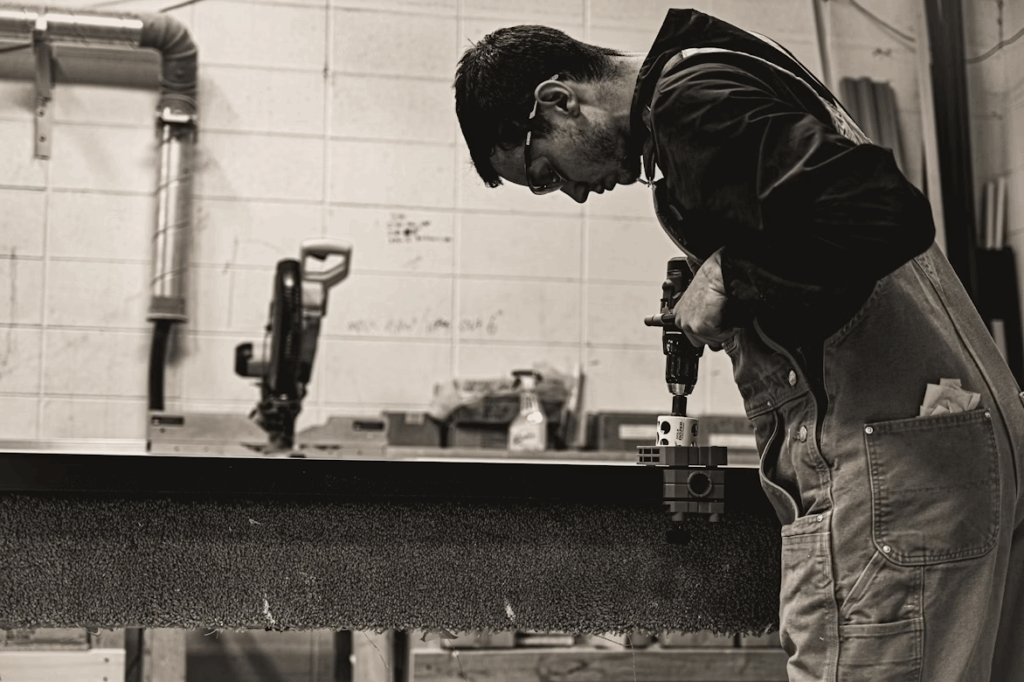If you think about it for a second, when was the last time a teenager sat across from a college counselor, nervously smoothing out the corners of their application folder, and heard something like, “Hey, have you ever thought about becoming a certified electrician? Or maybe a plumber who knows their way around smart-home installs?”
Honestly, the answer is probably close to never.
For decades, we’ve all been handed the same script. College leads to success, period. Go to a university, rack up two, maybe four degrees, then magically fall into a good life. Except the storyline feels tired now. Stale, even. It’s time counselors, parents, and students admit something that’s been true for a long time but whispered like it’s a secret. Trade careers aren’t a fallback plan. They’re a first choice, and a smart one at that.

The four-year degree track often leads straight into a thick fog of debt, followed by a job that barely glances at your diploma. For many bright, hands-on students, that’s not just a bad financial move; it drains their energy and sense of direction. These are the kids who would rather troubleshoot a cranky HVAC system or turn a welding torch into a design tool. They’re the ones who want financial freedom sooner rather than someday.
And this is where trade work shines. It’s direct. It’s tangible. It rewards the people who don’t want to sit through years of theory. Many motivated students use Construction Certification to get the credentials they need, like figuring out how to find the right CSCS card, and step into real, paid work in months instead of years. That kind of speed lifts self-esteem. It boosts their bank account. It gives them momentum. Why pretend that isn’t something worth celebrating in a counselor’s office?
Why We Need to Move Past the Degree-Only Mindset
Let’s talk about money because pretending it’s not part of the equation feels childish. Counselors often point students toward careers with high peak earnings. Fine. But they forget about the cost of getting there.
Four years of tuition. Four years of living expenses. Four years of not earning a full-time income. That’s a huge hole students must climb out of before they can begin building wealth.
Trade paths flip that script. Students spend a fraction of the time and cost on focused training. They start earning while they are still learning. They build equity early, whether it’s savings, a car, a home, or simply the blessing of not having a student loan payment the size of a car note.
Four-year degree path: debt stacks up, income starts late.
Trade path: income starts early, debt stays tiny or disappears entirely.
It’s not a trick question. One option gives a much healthier starting point.
The Quiet Confidence of a Skilled Technician
I met a young woman once who restored vintage cars. She tried college for a bit and felt lost, like her mind floated somewhere above the lecture hall. The first time she pulled apart an old Jaguar engine, something shifted. Her voice sounded different. Her whole presence solidified. She wasn’t just repairing a car; she was claiming her place in the world.
This is what many counselors overlook. Some students have a deep vocational identity. They think in motion. They understand the world through physical problem-solving. They shine when they can touch what they’re learning.
They are often the students who:
- Drift in lecture halls but thrive in shop classes
- Solve problems physically rather than theoretically
- Excel with spatial reasoning
- Want autonomy and dislike rigid hierarchies
Recommending a trade to someone like that isn’t an insult. It’s respect. Modern trades aren’t unskilled labor. They are technical, evolving, and deeply intellectual. An electrician today might spend the morning wiring a panel and the afternoon configuring smart-home systems or integrating renewable energy tools. That is math. That is logic. That is creativity.
It’s Not Just About Hammers and Wrenches
People still picture trades as something their grandfather did. A hammer. A pipe. A dusty truck. Reality is nothing like that.
Modern trades are tied to technology at almost every level.
Consider this:
- Sustainable building with geothermal systems
- Auto technicians running advanced diagnostics
- CNC machinists programming precision equipment
Students who master both the craft and the digital tools become incredibly marketable. Many end up contracting independently, creating jobs, and boosting their local economy in direct, visible ways.
A Counselor’s New Opening Question
So what should a counselor say? Something simple. Something honest.
“Tell me what energizes you. Do you like solving problems on paper or solving problems with your hands? In five years, do you want a steady income or are you comfortable waiting for it?”
It should feel normal to talk about apprenticeships, high-demand trades, and the path from apprentice to journeyman to master to business owner.
And here’s the quiet truth. Trade careers are more secure than many white-collar jobs that can be outsourced or automated. You can’t outsource a leaking pipe. You can’t automate replacing a roof. These roles are local and essential.
The Emotional Intelligence Behind the Trade Path
A lot of students pick majors because they feel pressure. They choose what is respectable instead of what feels natural. That pressure can hollow out their confidence.
But when a student chooses a trade that matches their strengths, something different happens. They stop pretending. They start excelling. They earn respect because they provide real-world value.
Counselors can change a young person’s life by saying, “Your practical skills are incredible. Let’s build a path around that.”

Skill Gaps and Future Proofing
Here’s the irony. We have a workforce full of degrees, yet a huge shortage of people who can repair, build, or maintain anything.
Finding a reliable roofer or HVAC tech often means waiting and paying a premium. This isn’t a momentary trend. It’s structural. As buildings get older and technologies evolve, we need skilled tradespeople more than ever. A student entering a trade today is stepping into a career that will stay relevant for decades.
Think about the next big storm. Who restores power? Who repairs structural damage? Who makes the community livable again? Not the remote analyst. It’s the linesman, the carpenter, the electrician.
The Freedom of Being Your Own Boss
One of the best parts of a trade career is how quickly it can lead to entrepreneurship. A motivated tradesperson can move from employee to business owner within a few years of becoming a journeyman or master.
Painters start companies. Tile setters become contractors. Welders open fabrication shops. They set their own hours, rates, and client lists. Their work becomes their signature.
This appeals to the student who hates fluorescent-lit cubicles. They want the sky overhead, or the workshop hum, or the satisfaction of turning raw material into something finished.
Challenging the “Trades Aren’t Creative” Myth
The idea that trades are dull is one of the most outdated myths in career counseling.
Trades demand creativity constantly. Custom cabinets. Ornamental metalwork. Intricate electrical routing in older structures. Problem-solving when nothing fits the blueprint. That is applied art. That is applied science.
If a student loves geometry but hates essays, maybe they are wired for surveying or sheet metal. If they love art but want a steady income, maybe they’d thrive in finishing, tile, or ornamental work.
We owe young people a wider definition of intelligence and success. The people who wire our buildings, tune our engines, and shape our homes aren’t just workers. They are creators. They are thinkers. They are craftspeople.
Extending the Lens
Let’s stretch the lens further because this conversation isn’t just about money or labor shortages. It is about identity and the quiet pride that comes from work that matters. You can feel it when a young carpenter finishes a project or when a plumber solves a family’s crisis before dinner. It is grounding and real in a way that many students crave but never hear validated.
Too many young people think the only respectable path involves framed diplomas. They imagine success as a clean line moving upward. But real life bends and shifts. Interests evolve. Careers wobble. A trade career invites flexibility from the start. You can start young, earn early, switch specialties, and grow with changing tools and technologies.
There is an emotional sturdiness that builds when someone can rely on their own competence. Fixing a furnace in freezing weather or repairing a water line before a family returns home brings a sense of purpose that is immediate and human. Many students crave that direct impact more than another semester of theory.
This is why counselors should ask questions like, “What was the last thing you built that made you proud?” If a student lights up talking about wiring a shed or restoring a bike, that is worth listening to. It hints at a future that fits naturally, not a future they have to force.
A student can use Construction Certification to move from curiosity to competence in a matter of months. They go from imagining a stable future to claiming one.
And the big picture is simple. We need more conversations that honor skilled work. We need more adults willing to tell young people the truth. A trade career isn’t a backup plan. It is a strong, creative, essential path that deserves just as much spotlight as any university brochure.
Maybe more.
